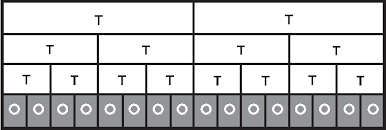Want help to write your Essay or Assignments? Click here
Methodological Triangulation
Introduction
Human interaction regarding family is somewhat complicated owing to the host of attributes that influence the person’s motives toward the other and the characteristics and effects of communication as the formulation of meaning between two or more individuals. This paper delineates two schools of thought, theoretical and practical, which highlight the significance of methodological triangulation in studying communication.
While the theoretical argument stipulates the modes of logic, inquiry, and explanation employed in research, the practical argument postulates the association between concept, technique and, and the purpose of investigation and validates how methodological triangulation incorporates alternative views on communication occurrences (Wood, 2005). In this paper, methodological triangulation is discussed.
Want help to write your Essay or Assignments? Click here
Triangulation: Determining the Reliability of Qualitative Studies
Accuracy, in a qualitative study, submits to whether the outcomes of a study are probable and reliable- probable in the sense that study outcomes represent the circumstances and reliable within the meaning that evidence underpins the study findings (Wood, 2005). Triangulation is an approach employed by qualitative scholars to evaluate and determine validity in their results by assessing a research question from various angles.
However, there has been a common misconception that the aim of triangulation is to realize accuracy from different sources of data. The truth is that inconsistencies are conceivable based on the comparative strength of divergent approaches. In Patton’s perspective, these discrepancies should be seen as diluting the evidence, but rather as an opportunity to unravel the underlying rationale in the data.
Methodological Triangulation
Methodological triangulation entails the use of various qualitative and qualitative approaches to studying the program. For instance, outcomes from questionnaires, focus groups, and interviews could be evaluated to determine similarities of results. The reliability of the data can only be evident when results from each approach are similar. For instance, suppose a scholar is piloting a case study of a welfare-to-work participant to examine the transformations in his life for taking part in the program for more than 12 months.
The scholar would be required to use interviews, observations, analysis or any other practical approach to evaluating the changes (Thurmond, 2001). The researcher can also assess respondents, their family members and event workers for the quantitative approach. If the outcomes from all of the procedures draw the same or comparable results, then validity has been determined.
Want help to write your Essay or Assignments? Click here
Advantages of methodological triangulation
Methodological triangulation increases confidence, create innovative approaches of comprehending a given phenomenon, demonstrate distinct findings, difficulties or integrate theories and provide a clearer recognition of the issues. All these benefits are a result of diversity as well as the quantity of information that may be used in the analysis. For instance, methodological triangulation has been used to get the detailed opinion of family needs in critical care (Thurmond, 2001).
Using questionnaires and interviews, participants can use such sessions as therapies while non-participants may communicate their disappointments on the questionnaires. Therefore, interviews and questionnaires enhance the depth of findings, which could be impossible through a single method, thus increases not only validity but also the utility of results.
Disadvantages
Methodological triangulation may be time-consuming. Gathering information requires planning and resource organization something that may not be available to researchers. Also, it can lead to disharmony of researcher’s bias and conflict due to theoretical framework inadequate understanding of the importance of methodological triangulation.
Want help to write your Essay or Assignments? Click here
Conclusion
By and large, methodological triangulation is an important strategy in the qualitative study; however it is necessary to weigh the benefits and challenges before using it. If a researcher integrates triangulation in a study, some triangulations may be applied; environmental, methodological, data and theory. Methodological triangulation may be employed to maximize the investigator’s comprehension of the problem while increasing confidence in results of qualitative research.
References
Thurmond, V.A. (2001) The Point of Triangulation. The Journal of Nursing Scholarship. 33 (3): 253-8
Wood, J. T. (2005). Communication Mosaics: an Introduction to the Field of Communication. Belmont, CA: Thomson.
Want help to write your Essay or Assignments? Click here


